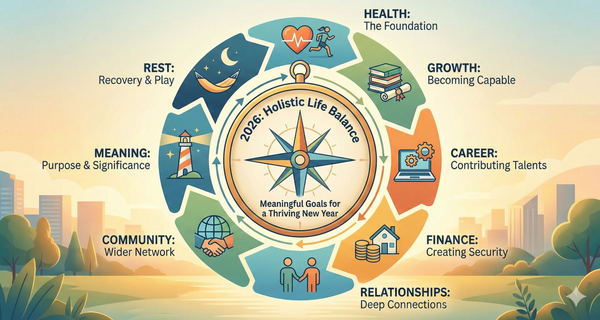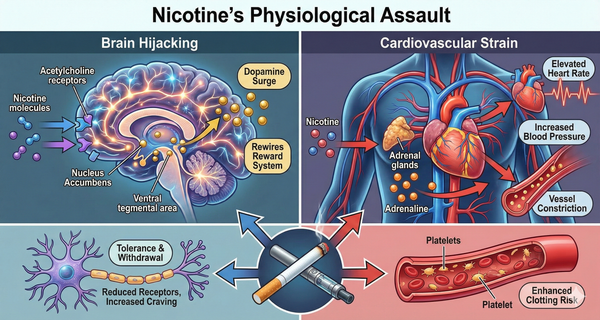Overcoming Procrastination: 5 Proven Methods

Procrastination is a universal struggle affecting individuals from all walks of life. Whether it's delaying a work project, putting off exercise, or avoiding household chores, procrastination can hinder personal growth and achievement. This article promises actionable solutions to help you stop procrastinating, employ effective focus tips, and ultimately beat laziness. Let's delve into the roots of procrastination and explore five proven methods to conquer it.
Understanding Procrastination
Understanding why we procrastinate is the first step to overcoming it. At its core, procrastination is a habit that is often rooted in deeper psychological issues, such as fear and perfectionism.
The Psychology of Delay
Procrastination often stems from a disconnect between our present self and our future self. This disconnect can cause us to prioritize immediate comfort over long-term goals. The allure of instant gratification, coupled with a natural aversion to discomfort, leads us to delay tasks despite knowing the negative consequences.
Perfectionism and Fear of Failure
Perfectionism can be a significant driver of procrastination. The fear of making mistakes or delivering subpar work can lead us to delay tasks indefinitely as we wait for the perfect moment or conditions that never arrive. Understanding these underlying issues is crucial to addressing procrastination effectively.
Method 1: The Two-Minute Rule
The Two-Minute Rule is an easy-to-implement technique designed to build momentum and combat procrastination.
How It Works
The premise of the Two-Minute Rule is simple: if a task takes two minutes or less to complete, do it immediately. This approach prevents tasks from accumulating and becoming overwhelming. By taking immediate action, you eliminate the burden of a lengthy to-do list and create a habit of tackling tasks as they arise.
Building Habits with Small Wins
Small wins accumulate over time, paving the way for improved productivity. By focusing on completing quick, easy tasks, you generate a sense of accomplishment that motivates you to tackle larger projects. The Two-Minute Rule not only reduces procrastination but also aids in habit formation, fostering an environment of continuous progress.
Method 2: Time-Blocking and the Pomodoro Technique
Structuring your time effectively is key to overcoming procrastination. Time-blocking and the Pomodoro Technique are two strategies that can enhance focus and productivity.
Implementing Time-Blocks for Deep Work
Time-blocking involves allocating specific time slots for different activities, ensuring dedicated periods for focused work. By assigning fixed blocks of time to tasks, you minimize distractions and fully commit to the work at hand. This structured approach helps you manage time more efficiently and prevents procrastination.
Using the Pomodoro Technique for Focus
The Pomodoro Technique is a time management method that breaks work into intervals, traditionally 25 minutes in length, separated by short breaks. This approach enhances focus and productivity by maintaining sustained attention during periods of deep work while preventing burnout through regular breaks. The Pomodoro Technique is especially effective in combating procrastination by instilling discipline and urgency in task completion.
Method 3: Break Down Large Tasks
Overwhelming projects can be a major source of procrastination. By breaking down large tasks into manageable components, you can tackle them more effectively.
The Power of Micro-Tasks
Micro-tasks are smaller, more manageable parts of a larger project. By dividing a daunting task into micro-tasks, you lessen its intimidation factor and make progress more achievable. Each completed micro-task serves as a stepping stone towards accomplishing the overall goal, fostering a sense of progress and motivation.
Creating an Actionable Plan
Creating a detailed, actionable plan breaks down large projects into organized steps. By outlining clear, achievable goals and setting deadlines for each phase, you prevent procrastination arising from uncertainty or confusion. An actionable plan provides a roadmap that guides you through the project, promoting steady progress and reducing stress.
Method 4: Eliminate Distractions
A focused environment is essential for productivity. Eliminating distractions enables you to concentrate fully on the task at hand.
Digital Detox
In the digital age, distractions are ever-present, from social media notifications to constant emails. A digital detox involves consciously disconnecting from these distractions to reclaim your focus. Setting boundaries on technology use, utilizing apps to block distracting websites, and designating device-free periods can significantly enhance productivity and minimize procrastination.
Creating a Distraction-Free Zone
A clutter-free, organized workspace fosters concentration. By removing physical distractions and optimizing your environment for focus, you create a space conducive to deep work. Arrange your workspace to minimize potential interruptions, ensuring that the tools and resources you need are readily accessible.
Method 5: Practice Self-Compassion
Self-compassion is a powerful tool in breaking the cycle of procrastination. Being kind to yourself can alleviate the guilt and anxiety that often accompany delayed tasks.
The Vicious Cycle of Guilt
Procrastination often leads to feelings of guilt and self-blame, which can further exacerbate the problem. This vicious cycle of guilt perpetuates procrastination, making it difficult to break free from its grasp. Practicing self-compassion involves acknowledging your struggles without harsh self-criticism, allowing you to approach tasks with a healthier mindset.
Forgive and Move Forward
Forgiving yourself for past procrastination is essential to moving forward. By letting go of guilt and embracing a more compassionate mindset, you create space for growth and improvement. Self-compassion empowers you to learn from setbacks and focus on progress rather than perfection.
Procrastination is a challenge that can be overcome with the right strategies. By understanding its roots and implementing methods like the Two-Minute Rule, time-blocking, breaking down tasks, eliminating distractions, and practicing self-compassion, you can effectively stop procrastinating and enhance your productivity. Embrace these techniques, and take the first step towards a more focused, fulfilling life today.




